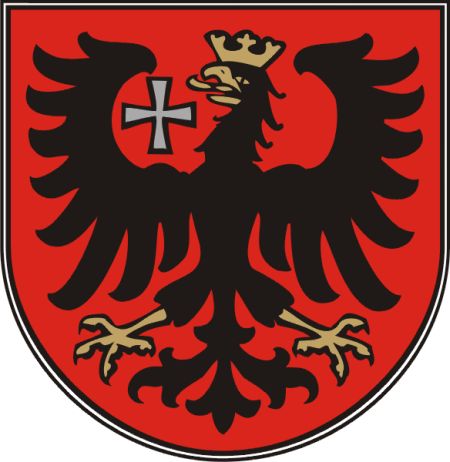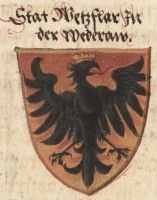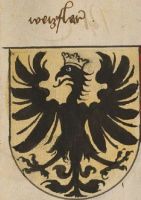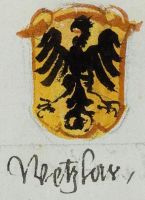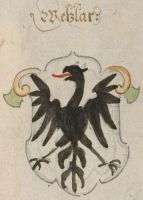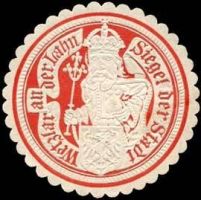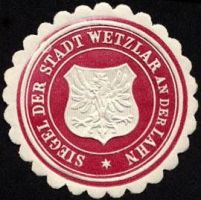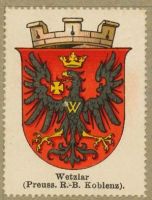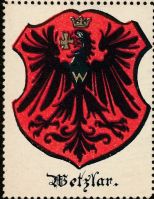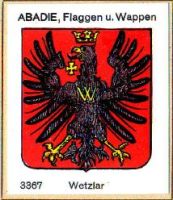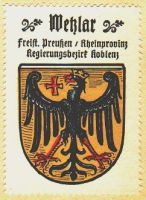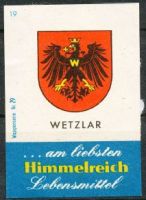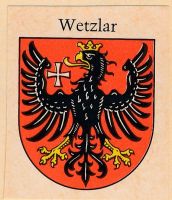Wetzlar: Difference between revisions
Knorrepoes (talk | contribs) m (Text replacement - "{| class="wikitable"↵|+Official blazon↵|-↵|'''German'''↵| ↵|-↵|'''English''' ↵| {{blazon wanted}}↵|}" to "{| class="wikitable" |+Official blazon |- |'''German''' | blazon wanted |- |'''English''' | blazon wanted |}") |
Knorrepoes (talk | contribs) m (Text replacement - "{{de1}}" to "{{de}}") |
||
| Line 44: | Line 44: | ||
{{ | {{de}} | ||
{{media1}} | {{media1}} | ||
Revision as of 12:12, 25 July 2023
WETZLAR
State : Hessen
District (Kreis) : Lahn-Dill Kreis (until 1976 Wetzlar)
Incorporated into : 1977-1979 Lahn
Additions : 1977 Dutenhofen, Garbenheim, Hermannstein (1971 Blasbach), Münchholzhausen, Nauborn, Naunheim, Steindorf
| German | blazon wanted |
| English | blazon wanted |
Origin/meaning
The arms were granted in 1965.
Wetzlar was a free imperial city (Reichsstadt) from 1180-1803. Hence the use of the emperor on a throne on the oldest seal, known since 1226. In 1374 a small shield was placed beside the throne, which shoed the imperial eagle and the small cross. The arms were used already on smaller seals since the mid 14th century.
The small cross is the symbol of the Kings of the Holy Roman Empire. Since the 17th century only the arms appear on the local seals. The colours are known since the 18th century. The composition of the arms thus has not changed since, although in the early 19th century a golden W was placed on the eagle.
Hupp showed the same composition as the present arms, but in the Imperial colours.
The arms in a 16th century manuscript
The arms in the Wappen-Sammlung (+/- 1910)
The arms in an album from around 1910
The arms in the Abadie albums
The arms by Hupp in the Kaffee Hag albums +/- 1925
The arms on a matchbox label
The arms in an album from 1968
This page is part of the German heraldry portal |
Heraldry of the World |
|
German heraldry:
|
Selected collector's items from Germany:
|
Literature: Stadler, 1964-1971, 8 volumes; Hupp, O: Kaffee Hag albums, 1920s
